Was Lula’s response proportional to the attacks on the presidential palace, Congress, and the Supreme Court?
Sharmini Peries
Welcome to theAnalysis. I’m Sharmini Peries, and I’ll be right back with Professor Lorena Barberia.
As we watch the events leading up to the two rounds of presidential elections in Brazil and then the inauguration of President Lula da Silva on January 1, many of us wondered how long Lula will be able to fend off a political crisis or even a coup. This is given the very narrow margin of his electoral victory and the fact that supporters of former President [Jair] Bolsonaro happened to be very strategically embedded in the military, in the police, in Congress, the Supreme Court, and some critical states.
So then, we were not surprised that a week after Lula’s inauguration, former President Bolsonaro’s supporters attacked the presidential palace, Congress, and the Supreme Court and ran havoc in Brasília.
Joining me now to discuss the recent political turmoil and the rise of the far-right in Brazil is Lorena Barberia. She is a professor of Political Science at the University of São Paulo. Lorena, thank you so much for joining us.
Lorena Barberia
Thank you, thank you. I’m glad to be here.
Sharmini Peries
Lorena, as we watched the event unfolding in Brasília on Sunday, as mobs attacked the presidential palace, Congress, and the Supreme Court, one just could not ignore the parallels to the December 6 [January 6] insurrection on Capitol Hill in the U.S. Now, can you draw attention to the parallels that I’m referring to here and what your observations were?
Lorena Barberia
Yes, so I think there are some similarities and there are some differences, and it’s important to preface that. Of course, Bolsonaro, while he was in office, watched the January 6 insurrection and learned; it was a very effective theater for him to see. He has been closely following a lot of [Former U.S. Pres. Donlad] Trump’s actions.
So what is different is that Bolsonaro was not physically present in Brasília, in the capital, at that moment, and Lula had already been inaugurated, which is different. So that’s one thing that’s very strikingly different. The insurrection, or what we are calling in Brazil terrorist attacks on these institutions, it happens when the transition has already occurred, but on a Sunday when legally or when those offices are not occupied physically by people working and the buildings are being attacked. But physically, the government is not in operation. So it’s a little bit different from January 6 in the sense that Congress wasn’t in session, the Supreme Court wasn’t in session, and the equivalent of our White House wasn’t a regular work day. It was a Sunday. But it was the first week in office in a very rocky and very difficult transition.
We have to remember that Bolsonaro did not hand over power to Lula. He left on a diplomatic passport before the transition could take place, the transition ceremony. Throughout his government, he stressed and emphasized that the elections would be manipulated, and he questioned the legitimacy of the election. When Lulu assumed power on January 1, that occurred in the context of assuming power with a very fragile electoral majority. As you noted, he won by 50.9% of the vote. Congress, many congressmen were elected that supported Bolsonaro. We also have a strong military and police support of Bolsonaro. Several governors were also elected that supported the president.
So he assumes power trying to construct a broad coalition cognizant of the opposition that exists to his election and trying to build consensus about the need to make a peaceful transition within democracy given his electoral victory, but also recognizing important forces of dissent. Not only that, throughout Brazil, not only in Brasília, Bolsonaro supporters constructed encampments starting in November and December that were really well-staffed, well-organized encampments right near the military barracks. So there are already these mobilizations, and those mobilizations grow in Brasília to have at least 40,000 people in the encampments in December before Lula transitions.
So there’s already kind of an environment that’s indicating that there’s interest in provoking the police, provoking the military, and creating instability that would lead to the military wanting to intervene.
Sharmini Peries
Lorena, 40,000 in encampments are fairly large in terms of preparation for any kind of resistance against Lula. Now, many people analyzing these events alluded to the fact that the role of the military and the police– one clip I saw said that the police were actually sitting on the sidelines, sipping on their coconuts and ignoring the mobsters that were attacking these democratic institutions in Brazil. What are your thoughts on that?
Lorena Barberia
So I think it’s important– I’ve spoken with a number of people who visited the encampments. When we talk about these encampments, it’s important to underscore they had electricity, they had generators, and they had hospitals, mini hospitals set up already. They had computers and offices working in these barracks, in these encampments near the barracks. So you don’t do that unless you have a lot of people who are very experienced in logistics and financing. This is not some kind of ‘Boy Scout’ encampment in the imaginary. People need to understand these are very well set up camps that were very well organized and well set up. They’re right; they’re situated near the barracks. But what’s important to understand is that, as you were alluding, the security in Brasília is managed by the state government because it’s a federal district, and the governor of Brasília is in charge of the policing in the federal district and provides security during the transition to the government that’s in office.
The chief of police of Bolsonaro, we have to remember, this is a person who, during the elections, mobilized and set up inspections of buses to try to slow down the voting in the poorer parts of the Northeast of Brazil especially. Sanctioned by the chief of police of Bolsonaro, there was already, during the elections, a lot of activity by the chief of police. When Bolsonaro loses the election, the governor who governs in this federal district of Brasília appoints the same police chief as the head of policing in the city. And that already signals alarm bells because this is the police chief that’s going to be in charge of the transition, in charge of ensuring security for the Lula government taking office.
There’s a bomb that goes off on December 26 in the airport as Brasília is getting lots of influx of newly appointed ministers and newly appointed elected officials and different civil servants that are coming in to take over and start working on the transition. So there’s a bomb that goes off. The chief of police is managing the security in a very adverse context, not sharing a lot of information with the Lula government. On top of that, you have these kinds of very well-funded and organized encampments in Brasília, but in other parts of Brazil.
As that happens, one of the things that we start to notice and we know is that there’s a huge mobilization in terms of the military and in terms of police forces neglecting or indicating lackluster support for guaranteeing security during the transition. And that includes the fact that during the naming of his staff, Lula tries to negotiate with the military by naming into the military establishments– the generals that are the ones who have seniority and not someone who’s trusted by Lula. So as a way to compromise, Lula, understanding this very difficult political context, tries to strike a compromise by saying, “I will cede and let the key posts in the military be named by who has more seniority and not by who’s more trusted by me.” So neither the chief of police nor the key military posts are really people close to the newly elected administration. It’s a very difficult context.
Just today, as we speak today, we have found documents because the Supreme Court ordered an inspection of the former police chief of Brasília House. They discovered documents that there was a three-page document actually outlining an order that would be admitted that would be used to justify the illegitimacy of the elections and justify an intervention to not allow the transition to take place.
Right now, what we know is not only were there actual speeches made by these figures in the military and in the police, publicly and on social media, decrying the legitimacy of the elections and not ensuring security during the transition period, but there’s actually physical evidence that they had written documents to plan how they would precisely decree the non-legitimacy of the election. So we know that this isn’t some theoretical conspiracy theory we have. There is actual evidence that they spent a lot of time working on the documents that would legitimize intervening and not transitioning power to who was democratically elected.
Sharmini Peries
Now, a lot of analysts looking at this situation knew that Lula really needed to get the military and the police under his wing in order to maintain stability once he took office. So these were really critical appointments. It’s interesting that you focus on that particular issue. Given all of this, how do you think Lula responded to the attacks and the unrest? Do you think it was proportional, and will it discourage further attacks on his presidency?
Lorena Barberia
Lula was not physically present in Brasília during the attacks. He was in São Paulo on official business. He flew in that evening into Brasília. Before flying in, he quickly mobilized and was really effective in calling all of the governors of the 26 states of Brazil, calling his cabinet, declaring, in this case specifically of the federal district, removing the chief of police from being in charge of security. So kind of getting the legitimacy ready for first taking back these government offices, getting the police to be under a supervisor, kind of an independent supervisor that came from the Ministry of Justice that would supervise the state government of Brasília, ensuring more transparency and more oversight over what was happening in the takeover back of these buildings.
But I think what was really important is he made a really strong effort to build a coalition that in taking back and going back to Brasília, him physically, he would go with the 26 governors. He would go with the 26 governors, many of whom did not support him and supported Bolsonaro during the elections. The idea was to signal that we believe in democracy, we believe in the rule of law and we believe that these people need to be prosecuted for the violent acts that they’re committing. We have a strong consensus in Brazilian institutions about the way forward. I think, in this case, I think Lula came out very successfully. This really strengthened his position, strengthened the conversation that he’s having with the opposition in terms of understanding that we really need to think about a way to cooperate more in a very polarized context, but that we can’t allow the situation to become as violent as it has in Brazil, as we saw on Sunday.
Sharmini Peries
Now, Lorena, many people have accused Bolsonaro and his supporters of drawing act and verse from the Trump playbook. As we speak, Bolsonaro is in the U.S. On arrival, he went to Mar-a-Lago, and that’s in Florida, where Trump lives. We also know that he’s hospitalized at the moment with some stomach pains. But we also know that Steve Bannon, the far-right mastermind of the Trump presidency, has been commenting on Bolsonaro supporters as if they were some sort of freedom fighters– on Twitter and in his commentaries, some media has picked up on this. What are your thoughts on this?
Lorena Barberia
So I think it is really important to point out the geopolitics of this. It is really controversial– if we think about the equivalent of what was happening in the U.S., imagine if when all of this happened, Trump fled to the U.K., and from the U.K. all of a sudden had people traveling back and forth from the U.S. to the U.K. maybe taking funds, maybe taking back secret intelligence, maybe doing other types of things internationally that are fueling attacks in Washington, D.C.
Right now, the difficulty for the U.S. and Brazil in this moment for us to think about is you have the President who left on a diplomatic passport, who is now no longer in office, so he doesn’t have the legitimacy to be in the U.S. under a diplomatic passport, receiving visits from supporters from Brazil, returning back to Brasília. These supporters have been seen during the protests and have been seen in some of these things. We know Bolsonaro and his sons; his family met over 80 times with Steve Bannon. So I think there’s a lot of issues that this raises of discomfort.
We have a long history of the U.S. intervening in Latin America. The U.S. needs to send out a message about its support for democracy and how strongly it’s willing to support democracy in the region. And that includes monitoring when we have authoritarian tendencies and evidence, as we have in the case of Brazil and these leaders exile themselves to the U.S., how the U.S. monitors what they’re doing in the U.S., and what funds or what other operations are occurring that if it was in the case of the U.S., this would be treated as something very diplomatically that we would be raising with authorities and foreign governments and expressing our discomfort about this issue. So I think it’s a really difficult issue for the U.S. right now. Why is Bolsonaro being allowed to kind of do and operate in the U.S. in a context where the same actions and the same type of activities would be considered violations of U.S. sovereignty if the U.S. was witnessing similar things– Trump in a foreign country doing similar actions? So it’s a very difficult and uncomfortable situation for the U.S.
I think, for Latin America right now, we’re looking at the Biden administration and asking a little bit. We want to see a kind of goodwill, and we want to build confidence in the transition in Brazil. That requires regional support for the Lula government that goes beyond just lip service of sending out tweets saying the transition needs to go forward in Brazil. It requires concrete actions. If there are financial transactions from the Bolsonaro government of funds being sent to Brazil, those need to be investigated. Some of the leaders in Brazil, in the opposition, are already talking about if there is evidence of these types of things, this is the type of activity that needs to be– his bank accounts need to be frozen in the U.S. Those activities need to be investigated if they’re financing terrorism.
Sharmini Peries
Lorena, let’s pause for a moment and look back on Brazilian history. Now, one of the reasons for this rise of the far-right in Brazil and why its connections internationally are so alarming is because of the very real history of Brazil and the military dictatorship of the past in Brazil. Take us back. What alarm bells go off in your knowledge of political history and its alliance with the dictatorship of the past in Brazil?
Lorena Barberia
I think there are two things that I think are very important to stress. First, Bolsonaro and the rise of the Right is nothing new. We know throughout the history of Brazil, the Right, first the oligarchy and then elites and authoritarian elites– we have a strong history of the military governing in Brazil for a long period of time. The Right, during the transition to democracy in Brazil, unlike Argentina, for example, negotiated to have impunity, to not be punished; there were never trials in the case of Brazil of the military government and their activities. There wasn’t the type of transitional justice that we saw in other countries. As a result, many of the people who we’re speaking about right now in the Bolsonaro government, who have been active and who have been supporting the questioning of the elections, are military who have roots in authoritarian rule in Brazil prior to the transition to democracy. So we have learned to coexist with the Right in Brazil. But the Right has a long history in Brazil and a long history of also having to manage and trying to navigate democracy with the Right.
When we think about Lula’s first Presidency, he named a president from the Right to govern as his vice president because there’s this idea that, and it’s very necessary that as someone from a more progressive political party gets elected, he needs to bring the Right along to ensure the legitimacy of having the Left govern in Brazil. So I think we have a long history of compromising and working together across ideological extreme views.
What’s different at this moment, and I think is important, is that the Right has become much more propense to undertake violent actions to intimidate voters, to intimidate and impede due process, and to lie, in fact, in order to put people in jail to that extreme, in order to ensure to secure power. So the Right is becoming really comfortable with manipulating democratic processes in order to secure power. And that’s what makes it difficult for us in Brazil, at this moment, is that it’s a very difficult conversation to have. We want to preserve democracy, we want to preserve the institutions, we want corruption to be investigated, and we want judges to do the right thing and to judge when people commit criminal acts. At the same time, we also know that the military, the police, and the Right are not playing by the same rules, necessarily, and they’re manipulating information; they’re lying.
Afterward, we find evidence to show that there’s actual misinformation or disinformation and lies being used when actually the evidence is showing no, there was actually, as we’re just talking about now, on January 8, they actually did have the document ready. It just so happened that it wasn’t as successful of an attack as they wanted, but the documents were ready to decree and not recognize the legitimacy of the election. And that’s been something that took a lot of planning. It took a lot of discussions and agreement for you to get to the point that you have that type of consensus to actually bar the transition of someone who’s democratically elected. So we have a very difficult situation, but nothing new. I think that’s important to stress. The Right has always existed in Brazil.
Sharmini Peries
Lorena, let’s take this up as our final point. The legislative type coups are becoming somewhat trendy, and we know that Latin America is really the laboratory of the U.S. empire. Previously, when Lula was accused of corruption, Judge [Sergio] Moro took up his case, he was imprisoned, and then, of course, Lula’s handpicked successor, Dilma Rousseff, was also impeached. These types of legislative coups are becoming more common, at least in Brazil. They’ve tested the ground. How much of a hand do you think external forces have in terms of what’s going on in Brazil, and what is it we need to be alerted to and aware of?
Lorena Barberia
I think one thing that’s really important that we’re debating a lot at the moment in Brazil is judicial activism. You alluded to Judge Moro, who launched the investigations into Lula and was responsible for prosecuting him, and later, he was exonerated for the charges that put him in jail because the evidence was actually proved to be not sufficient and the allegations didn’t hold. So I think now, similarly, in the January 8 uprising, there’s been very important actions that took place by the Supreme Court.
During the elections, the electoral courts were very important in terms of ensuring the security of the election and respect for the electoral process. But the judiciary and the activeness of the judiciary to mediate political conflict in a democracy is something important for us to be reflecting on. If we think about it, that’s something that, on the one hand, judges are not elected; they don’t represent us. They’re in office for a long time. So when you have a society, a democracy, in which judges have a strong role, that role can be beneficial, but it can also be very dangerous. I think that’s one of the things that we’re trying to grapple with at this moment. Because of judicial activism, we’ve had many of the bad things that have happened in Brazil politically, and also, some of the reasons that we’ve been able to get out of bad moments are because of judges and the judicial process. But is that the way to deliberate correctly, disagreement and political conflict in a democratic society, or is it something that we need to work through elections, through legislative debate, through the passing of laws, through the vetoing, or the rejection of what is passed in the legislature?
I think there’s a lot of room for that, at this moment, to be debated. The people who uphold Lula, the best place for them to do that is in Congress through laws. At the same time, for the people who support Lula and who want change, the best place for us to ensure that he’s able to govern is by getting a Congress more representative of the types of policy reforms we want to see. I think that, actually, I’m more hopeful, or I actually think that the Senate and strengthening Congress at this moment, it would be something beneficial because it’s something transparently we can monitor. We have oversight about how a law is being deliberated. What is the actual vote? What are the implications of the law? Whereas a lot of the judicial interpretations of the law can be really questionable, as we’ve seen in Brazil. Evidence can be fabricated. A judge can read what he wants into the evidence, cite specific evidence, and ignore the rest of the evidence. And it takes many, many years often to overturn a judicial decision. So I think I’m more hopeful about the role of Congress and the executive and strengthening those institutions and more worried about the role of the judiciary.
Sharmini Peries
Alright, Lorena, let’s leave it there. I’ve been speaking with Professor Lorena Barberia, and she is coming to us from the University of São Paulo, Brazil. Lorena, we will definitely continue this conversation moving forward. Thank you so much for joining me today.
Lorena Barberia
Thank you. Thank you very much.
Sharmini Peries
Thank you for joining us here on theAnalysis.
Sharmini Peries
Bienvenido The Analysis. Soy Sharmini Peries y volveré enseguida con la profesora Lorena Barberia.
Mientras observamos los acontecimientos previos a las dos vueltas de las elecciones presidenciales en Brasil y la posterior toma de posesión del presidente Lula da Silva el 1 de enero, muchos de nosotros nos preguntamos durante cuánto tiempo podría Lula evitar una crisis política o incluso un golpe de Estado. Esto es debido al estrecho margen de su victoria electoral y al hecho de que los partidarios del expresidente Bolsonaro estaban estratégicamente integrados en el ejército, en la policía, en el Congreso, la Corte Suprema y algunos estados claves.
Entonces, no nos sorprendió cuando, una semana después de la investidura de Lula, partidarios del expresidente Bolsonaro atacaron el palacio presidencial, el Congreso, la Corte Suprema y causaron disturbios en Brasilia.
Me acompaña ahora para hablar de la reciente agitación política y el ascenso de la extrema derecha en Brasil Lorena Barberia. Es profesora de Ciencias Políticas en la Universidad de São Paulo.
Lorena, muchas gracias por acompañarnos.
Lorena Barbería
Gracias, gracias. Es un placer estar aquí.
Sharmini Peries
Lorena, mientras observábamos el desarrollo de acontecimientos en Brasilia el domingo, cuando grupos de personas atacaron el palacio presidencial, el Congreso y la Corte Suprema, era imposible no ver los paralelismos con la insurrección del 6 de diciembre [6 de enero] en el Capitolio de los EE. UU. ¿Puedes hablar sobre estos paralelismos y cuáles fueron tus observaciones?
Lorena Barberia
Sí, creo que hay algunas similitudes y hay algunas diferencias, y es importante ponerlo en contexto.
Por supuesto, Bolsonaro, cuando estaba en el cargo, vio la insurrección del 6 de enero y aprendió; para él fue un teatro muy efectivo. Ha estado siguiendo de cerca muchas de las acciones de Trump. Lo que es diferente es que Bolsonaro no estaba físicamente presente en Brasilia, en la capital, en ese momento, y Lula ya había asumido el cargo, a diferencia de Biden. Así que eso es claramente diferente.
La insurrección, o lo que llamamos en Brasil los atentados terroristas contra estas instituciones, ocurre cuando la transición ya ha tenido lugar, pero un domingo, cuando legalmente… o cuando esas oficinas no están ocupadas físicamente. No había gente trabajando cuando atacaron los edificios. Físicamente, el Gobierno no está en funcionamiento. Así que es un poco diferente al 6 de enero en el sentido de que el Congreso no estaba en sesión, la Corte Suprema no estaba en sesión, y el equivalente a la Casa Blanca… No era un día normal de trabajo, era domingo.
Pero fue la primera semana en el cargo en una transición muy accidentada y muy difícil. Hay que recordar que Bolsonaro no entregó el poder a Lula. Se fue con un pasaporte diplomático antes de que pudiera tener lugar la transición, la ceremonia de transición. A lo largo de su mandato subrayó y enfatizó que las elecciones serían manipuladas, y cuestionó la legitimidad de las elecciones.
Cuando Lula asume el poder el 1 de enero, esto ocurrió en el contexto de una mayoría electoral muy frágil. Como has señalado, ganó con un 50,9 % de los votos. El Congreso… Salieron elegidos muchos congresistas que apoyaban a Bolsonaro. También tenemos un fuerte apoyo militar y policial a Bolsonaro. Fueron elegidos varios gobernadores que apoyan al presidente. Así pues, asume el cargo tratando de construir una amplia coalición consciente de la oposición que existe a su elección y tratando de construir consensos sobre la necesidad de hacer una transición pacífica en el marco de la democracia dado que había conseguido una victoria en las urnas, pero también reconociendo importantes fuerzas de disidencia.
No solo eso, en todo Brasil, no solo en Brasilia, partidarios de Bolsonaro construyeron campamentos ya desde noviembre y diciembre que eran campamentos muy bien organizados y con personal justo al lado de cuarteles militares. Entonces, ya existen estas movilizaciones, y esas movilizaciones crecen en Brasilia con al menos 40 000 personas en los campamentos en diciembre antes de la transición de Lula. Así que ya vemos una atmósfera que indica que existe la intención de incitar a la policía, de incitar a los militares, y de crear inestabilidad que llevaría a los militares a intervenir.
Sharmini Peries
Lorena, 40 000 en campamentos es considerable en términos de preparación para cualquier tipo de resistencia contra Lula. Muchas personas que analizan estos acontecimientos aluden al hecho de que el papel de los militares y la policía… Vi un clip en el que se veía que la policía en realidad se estaba manteniendo al margen, bebiendo su agua de coco, y no hacían nada con respecto a las muchedumbres que estaban atacando estas instituciones democráticas en Brasil. ¿Cuáles son tus pensamientos sobre eso?
Lorena Barberia
Creo que es importante… He hablado con varias personas que visitaron los campamentos. Cuando hablamos de estos campamentos, es importante subrayar que tenían electricidad, tenían generadores, y tenían hospitales, minihospitales, ya instalados. Tenían ordenadores y oficinas en funcionamiento en estos barracones, en estos campamentos cerca de los cuarteles. Y no haces eso a menos que tengas mucha gente con mucha experiencia en logística y financiación. Esto no es una especie de campamento imaginario de boy scouts. La gente debe entender que estos son campamentos muy bien construidos y bien organizados. Y están situados cerca de los cuarteles.
Pero lo que es importante entender es que, como decías, la seguridad en Brasilia es administrada por el Gobierno del estado porque es un distrito federal, y el gobernador de Brasilia está a cargo de la policía en el distrito federal y de la seguridad durante la transición al Gobierno de turno. Recordemos que el jefe de policía de Bolsonaro es una persona que durante las elecciones movilizó y organizó inspecciones de autobuses para tratar de frenar la votación en las partes más pobres, en el noreste de Brasil especialmente. Con la aprobación del jefe de policía de Bolsonaro. Ya hubo mucha actividad por parte del jefe de policía durante las elecciones.
Cuando Bolsonaro pierde las elecciones, el gobernador de este distrito federal de Brasilia nombra al mismo jefe de policía como jefe de policía de la ciudad. Y eso ya da señales de alarma porque este es el jefe de policía que va a estar a cargo de la transición, encargado de velar por la seguridad en la toma de posesión del Gobierno de Lula.
El 26 de diciembre estalla una bomba en el aeropuerto, cuando Brasilia está recibiendo gran afluencia de ministros y funcionarios electos recién nombrados y diferentes funcionarios que llegan para tomar el relevo y empezar a trabajar en la transición. Así que hace explosión una bomba. El jefe de policía está gestionando la seguridad en un contexto muy adverso, no comparte mucha información con el Gobierno de Lula.
Además de eso, vemos estos campamentos muy bien financiados y organizados, en Brasilia, pero también en otras partes de Brasil. Mientras eso sucede, una de las cosas que empezamos a notar y que sabemos es que hay una gran movilización entre los militares y entre las fuerzas policiales de descuidar… o que muestran un apoyo tibio por garantizar la seguridad durante la transición. Y eso incluye el hecho de que durante el nombramiento de su personal, Lula intenta negociar con los militares nombrando a generales en los estamentos militares que tienen antigüedad y no a alguien de confianza de Lula. Entonces, como término intermedio, Lula, entendiendo este contexto político tan difícil, trata de llegar a un acuerdo diciendo: “Cederé y dejaré que los puestos clave en las fuerzas armadas sean aquellos con más antigüedad y no aquellos que tienen mi confianza”. Por tanto, ni el jefe de policía ni los puestos militares clave son realmente personas cercanas a la nueva administración.
Es un contexto muy difícil. Precisamente hoy, mientras hablamos hoy, se han encontrado documentos… Porque la Corte Suprema ordenó un registro de la casa del exjefe de policía de Brasilia y descubrieron documentos. Había un documento de tres páginas que describía una orden admisible ante un tribunal que se utilizaría para probar la ilegitimidad de las elecciones y justificar una intervención para no permitir que se produzca la transición.
En este momento, lo que sabemos es que estas figuras en el ejército y la policía no solo pronunciaron discursos públicamente y en las redes sociales, negaron la legitimidad de las elecciones y no garantizaron la seguridad durante el periodo de transición, sino que en realidad hay evidencia física de que tenían documentos escritos en los que se planificaba cómo decretarían precisamente la no legitimidad de las elecciones. Así pues, sabemos que esta no es una teoría de conspiración que tenemos. Hay pruebas reales de que dedicaron mucho tiempo trabajando en los documentos que legitimarían la intervención para no traspasar el poder a quien fue elegido democráticamente.
Sharmini Peries
Muchos analistas que veían esta situación sabían que Lula realmente necesitaba tener al ejército y la policía a su lado para mantener la estabilidad una vez que asumiera el cargo. Así que estos eran nombramientos realmente críticos. Sería interesante que comentases ese tema en particular. Ante todo esto, ¿cómo crees que respondió Lula a los ataques y disturbios? ¿Crees que fue proporcional? ¿Desalentará más ataques contra su presidencia?
Lorena Barberia
Lula no estaba físicamente presente en Brasilia durante los ataques. Estaba en São Paulo por asuntos oficiales. Voló esa noche a Brasilia. Antes de volar, se movilizó rápidamente y fue realmente efectivo al llamar a todos los gobernadores de los 26 estados de Brasil, llamó a su gabinete y, en este caso específicamente del distrito federal, relevó al jefe de policía de la seguridad durante la investidura.
Así que preparó la legitimidad para, primero, recuperar estas oficinas gubernamentales, y asignó un supervisor a la policía, una especie de supervisor independiente que vino del Ministerio de Justicia, que supervisaría el Gobierno del estado de Brasilia, asegurando más transparencia y más supervisión sobre lo que estaba sucediendo en la toma de estos edificios.
Pero creo que lo realmente importante es que hizo un gran esfuerzo para construir una coalición para que al volver a Brasilia, físicamente, iría con los 26 gobernadores. Iría con los 26 gobernadores, muchos de los cuales no lo habían apoyado, apoyaron a Bolsonaro durante las elecciones. La idea era señalar que creemos en la democracia, creemos en el Estado de derecho, y creemos que estas personas deben ser procesadas por los actos violentos que están cometiendo. Tenemos un fuerte consenso en las instituciones brasileñas sobre el camino a seguir.
En este caso, creo que Lula salió muy bien. Esto realmente fortaleció su posición, fortaleció la comunicación que está teniendo con la oposición en cuanto a entender que realmente debemos pensar en una manera de cooperar más en un contexto muy polarizado, pero que no podemos permitir que la situación se torne tan violenta en Brasil como vimos el domingo.
Sharmini Peries
Bien, Lorena, mucha gente ha acusado a Bolsonaro y sus seguidores de seguir al pie de la letra la cartilla de Trump. En este momento, Bolsonaro está en EE. UU. Al llegar, se fue a Mar-a-Lago, la casa de Trump en Florida. También sabemos que está hospitalizado en este momento por dolores de estómago. Pero también sabemos que Steve Bannon, el cerebro de extrema derecha de la presidencia de Trump, ha hecho comentarios sobre los partidarios de Bolsonaro como si fueran una especie de luchadores por la libertad, en Twitter y en sus comentarios, y algunos medios han informado de esto. ¿Cuáles son tus pensamientos?
Lorena Barberia
Creo que es muy importante señalar la geopolítica de esto. Es realmente controvertido, si pensamos en el equivalente con lo que pasó en los Estados Unidos. Imagínate si cuando todo esto pasó, Trump hubiera huido al Reino Unido, y desde el Reino Unido, de repente hubiera gente que viajaba de un lado a otro, de los EE. UU. al Reino Unido, quizá moviendo fondos, quizá llevando información de inteligencia secreta, quizá haciendo otro tipo de cosas a nivel internacional, que están fomentando los ataques en Washington, DC.
Ahora mismo, la dificultad para EE. UU. y Brasil en este momento que debemos considerar es que el presidente se fue con un pasaporte diplomático, y ahora ya no está en el cargo, por lo que no tiene la legitimidad para estar en los EE. UU. con un pasaporte diplomático, recibiendo visitas de simpatizantes de Brasil, que después regresan a Brasilia. Estos simpatizantes han sido vistos durante las protestas, han sido vistos en algunas de estas cosas. Y tienes… Sabemos que Bolsonaro y sus hijos, su familia, se reunieron más de 80 veces con Steve Bannon.
Así que creo que esto plantea muchos problemas, es incómodo. Tenemos una larga historia de intervención de Estados Unidos en América Latina. Estados Unidos debe enviar un mensaje sobre su apoyo a la democracia y asegurar que está dispuesto a apoyar firmemente la democracia en la región. Y eso incluye dar seguimiento a posibles tendencias autoritarias y a la evidencia, como tenemos en el caso de Brasil, cuando estos líderes se exilian a los EE. UU., cómo los EE. UU. vigilan lo que están haciendo en los EE. UU., y qué fondos o qué otras operaciones están ocurriendo. Porque si fuera el caso de EE. UU., estaríamos planteando esto a nivel diplomático con autoridades y Gobiernos extranjeros, y expresando nuestro malestar por este tema. Así que creo que es un tema realmente difícil para los EE. UU. en este momento. ¿Por qué se le permite a Bolsonaro operar en los EE. UU. en un contexto donde las mismas acciones y el mismo tipo de actividades serían consideradas violaciones de la soberanía de EE. UU. si este estuviera presenciando cosas similares, Trump en un país extranjero llevando a cabo acciones similares?
Entonces, es una situación muy difícil e incómoda para los EE. UU. Creo que, para América Latina en este momento, miramos a la administración de Biden y hacemos preguntas. Queremos ver buena voluntad, y queremos generar confianza en la transición en Brasil. Eso requiere apoyo regional para el Gobierno de Lula que vaya más allá de la simple palabrería de enviar tuits que digan: “La transición debe avanzar en Brasil”. Requiere acciones concretas. Si hay transacciones financieras del Gobierno de Bolsonaro, de fondos enviados a Brasil, estas deben ser investigadas. Algunos de los líderes en Brasil, en la oposición, ya están hablando de que si hay pruebas de este tipo de cosas, este tipo de actividad debe ser… sus cuentas bancarias deben congelarse en los EE. UU. Esas actividades deben ser investigadas si están financiando el terrorismo.
Sharmini Peries
Lorena, detengámonos un momento y recordemos la historia de Brasil. Una de las razones de este ascenso de la extrema derecha en Brasil y por qué sus conexiones a nivel internacional son tan alarmantes es por la historia muy real de Brasil y la dictadura militar del pasado en Brasil.
Háblanos de eso. ¿Qué es lo que te preocupa con base en tu conocimiento de la historia política y su alianza con la dictadura del pasado en Brasil?
Lorena Barberia
Creo que hay dos cosas que me parece muy importante recalcar.
Primero, Bolsonaro y el ascenso de la derecha no son nada nuevo. Sabemos que a lo largo de la historia de Brasil, por la derecha, primero la oligarquía y luego las élites y, en particular, las élites autoritarias, tenemos una fuerte historia de Gobierno militar en Brasil durante un largo periodo de tiempo. La derecha, durante la transición a la democracia en Brasil, a diferencia de Argentina, por ejemplo, negoció para obtener impunidad, para no ser sancionada; nunca hubo juicios, en el caso de Brasil, del Gobierno militar y sus actividades. No hubo el tipo de justicia transicional que vimos en otros países. Como resultado, muchas de las personas de las que estamos hablando en este momento en el Gobierno de Bolsonaro que han estado activas y que han estado apoyando el cuestionamiento de las elecciones son militares con raíces en el Gobierno autoritario en Brasil antes de la transición a la democracia.
Hemos aprendido a convivir con la derecha en Brasil. Pero la derecha tiene una larga historia en Brasil y es también una larga historia de tener que gestionar… tratar de hacer funcionar la democracia con la derecha. Cuando pensamos en la primera presidencia de Lula, nombró como vicepresidente a un presidente de la derecha porque existe esta idea, y es muy necesaria, de que cuando alguien de un partido político más progresista es elegido, debe incluir a la derecha para asegurar la legitimidad de un Gobierno de izquierda en Brasil.
Así que creo que tenemos una larga historia de acuerdos y trabajo conjunto entre puntos de vista ideológicos extremos. Lo que es diferente en este momento, y creo que es importante, es que la derecha se ha vuelto mucho más propensa a emprender acciones violentas para intimidar a los votantes, intimidar e impedir el debido proceso y mentir, de hecho, para encarcelar personas incluso, para asegurarse el poder. La derecha ahora no tiene ningún escrúpulo en manipular los procesos democráticos para asegurarse el poder.
Eso es lo que nos dificulta en Brasil, en este momento… Es una conversación muy difícil de entablar. Queremos preservar la democracia, queremos preservar las instituciones, queremos que se investigue la corrupción, y queremos que los jueces cumplan con su deber y juzguen a las personas cuando estas cometen actos delictivos. Al mismo tiempo, también sabemos que los militares, la policía y la derecha no juegan con las mismas reglas, necesariamente, y están manipulando información, están mintiendo. Encontramos pruebas que demuestran que hay información errónea o desinformación y se usan mentiras cuando en realidad la evidencia muestra que en realidad, como decíamos, el 8 de enero sí tenían listo el documento. En última instancia, no fue un ataque tan exitoso como querían, pero los documentos estaban listos para decretar y no reconocer la legitimidad de las elecciones. Y eso ha sido algo que requirió mucha planificación, requirió muchas discusiones y acuerdo para llegar al punto en el que tienes ese tipo de consenso para bloquear la transición de alguien elegido democráticamente.
Entonces, tenemos una situación muy difícil, pero nada nuevo. Creo que es importante subrayar esto. La derecha siempre ha existido en Brasil.
Sharmini Peries
Lorena, tomemos esto como nuestro punto final. Los golpes de tipo legislativo se están poniendo de moda, y sabemos que América Latina es realmente el laboratorio del imperio estadounidense.
Anteriormente, cuando Lula fue acusado de corrupción, el juez [Sergio] Moro tomó su caso. Él fue encarcelado y, luego, por supuesto, la sucesora elegida por Lula, Dilma Rousseff, también fue acusada.
Estos golpes legislativos son cada vez más comunes, al menos en Brasil. Han hecho un experimento. ¿Qué influencia crees que tienen las fuerzas externas en términos de lo que está pasando en Brasil, y cuáles son las señales de alerta que debemos reconocer?
Lorena Barberia
Creo que una cosa muy importante que estamos debatiendo mucho en este momento en Brasil es el activismo judicial. Has hablado del juez Moro, que abrió las investigaciones a Lula y se encargó de procesarlo. Posteriormente, fue exonerado de los cargos por los que fue encarcelado porque en realidad se demostró que las pruebas no eran suficientes y las acusaciones no se sostenían.
Pienso que ahora, de manera similar, en el levantamiento del 8 de enero, la Corte Suprema llevó a cabo acciones muy importantes. Durante las elecciones, los tribunales electorales fueron muy importantes en cuanto a garantizar la seguridad de las elecciones y el respeto al proceso electoral.
Pero el poder judicial y la actividad del poder judicial para mediar en conflictos políticos en una democracia es algo sobre lo que deberíamos reflexionar. Si lo pensamos bien, eso es algo que… Por un lado, los jueces no son elegidos, no nos representan. Están en el cargo durante mucho tiempo. Entonces, cuando tienes una sociedad, una democracia, en la que los jueces tienen un papel importante, ese papel puede ser beneficioso, pero también puede ser muy peligroso. Creo que esa es una de las cosas con las que estamos tratando de lidiar en este momento. El activismo judicial ha sido la causa de muchas de las cosas malas que han sucedido políticamente en Brasil y, también, algunas de las razones por las que hemos podido salir de malos momentos son los jueces y el proceso judicial.
Pero ¿es esa la manera de deliberar correctamente el desacuerdo y el conflicto político en una sociedad democrática, o es algo que debemos resolver mediante elecciones, mediante el debate legislativo, mediante la aprobación de leyes, mediante el veto o el rechazo de lo que se aprueba en la legislatura? Creo que hay mucho espacio para debatir eso en este momento. El mejor lugar para que hagan esto aquellos que apoyan a Lula es en el Congreso a través de leyes. Al mismo tiempo, para las personas que apoyan a Lula y que quieren un cambio, el mejor lugar para asegurarnos de que pueda gobernar es conseguir un Congreso que sea más representativo de los tipos de reformas políticas que queremos ver.
Creo que, en realidad, tengo más esperanzas… o en realidad creo que el Senado y el fortalecimiento del Congreso en este momento sería algo beneficioso porque es algo que podemos observar de manera transparente. Supervisamos cómo se debate una ley, cuál es el voto real, cuáles son las implicaciones de la ley. En contraste, muchas de las interpretaciones judiciales de la ley pueden ser realmente cuestionables, como hemos visto en Brasil. La evidencia puede ser falsificada. Un juez puede interpretar esa prueba como quiera, citar una prueba específica y pasar por alto el resto. Y se necesitan muchos años para anular una decisión judicial.
Así que creo que tengo más esperanzas sobre el papel del Congreso y el ejecutivo y el fortalecimiento de esas instituciones y estoy más preocupada por el papel del poder judicial.
Sharmini Peries
Muy bien, Lorena, dejémoslo ahí.
He estado hablando con la profesora Lorena Barberia, y nos habla desde la Universidad de São Paulo, Brasil.
Lorena, definitivamente continuaremos esta conversación en el futuro. Muchas gracias por acompañarme hoy.
Lorena Barbería
Gracias. Muchísimas gracias.
Sharmini Peries
Gracias por acompañarnos aquí en The Analysis.
Podcast: Play in new window | Download | Embed
Subscribe Apple Podcasts | Spotify | Android | iHeartRadio | Blubrry | TuneIn | Deezer | RSS
Never miss another story
Subscribe to theAnalysis.news – Newsletter
“Lorena G. Barberia is a professor in the Department of Political Science at the University of São Paulo. Her primary fields of interest are comparative political economy, Latin American politics, and political methodology. Her work analyzes redistributive politics in Latin America.”



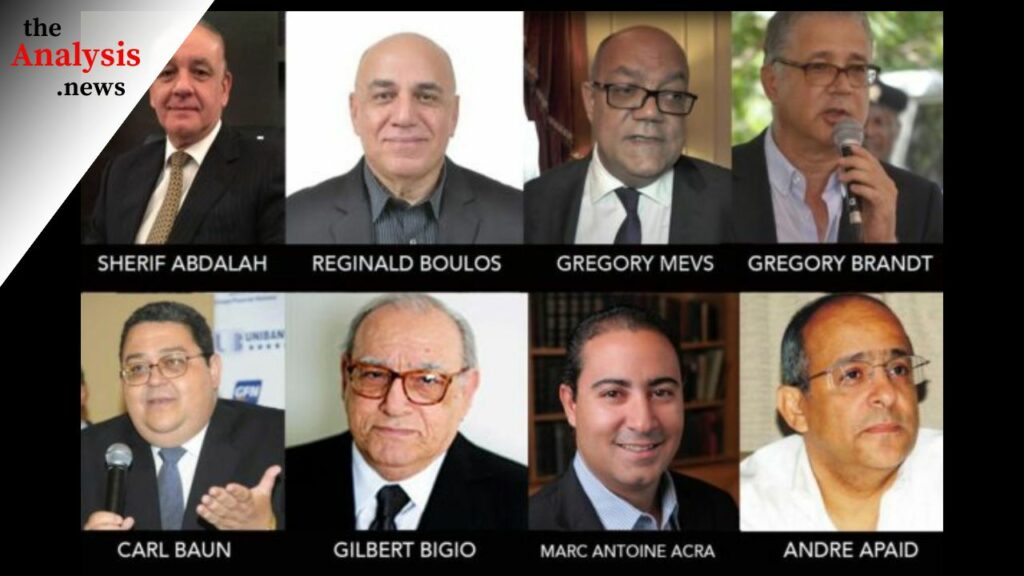
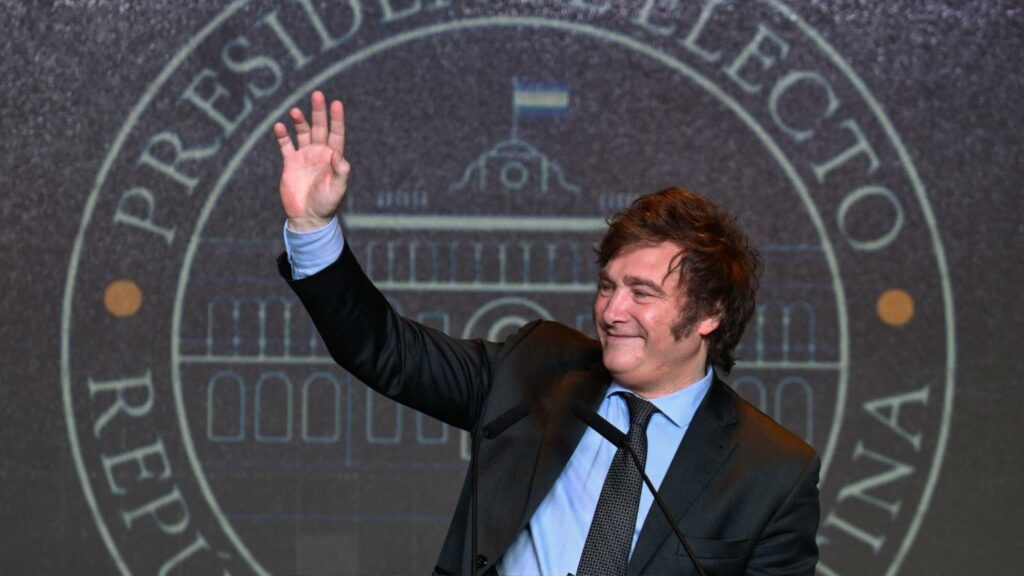
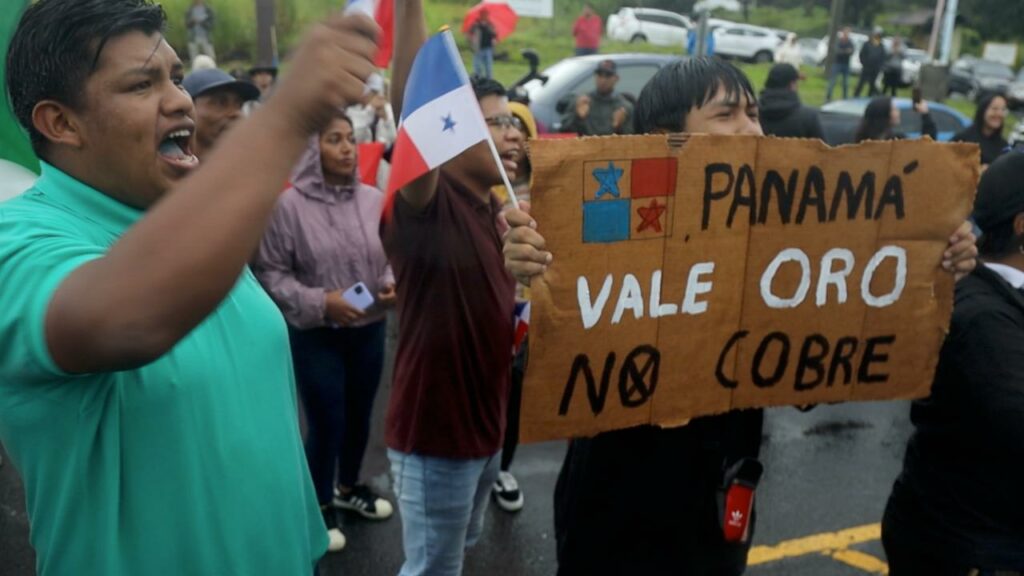
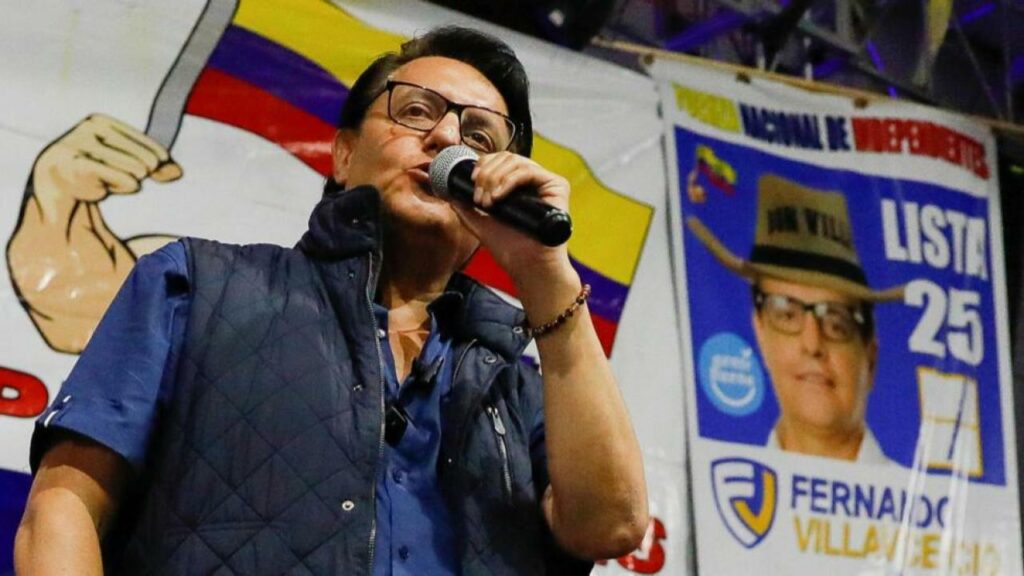
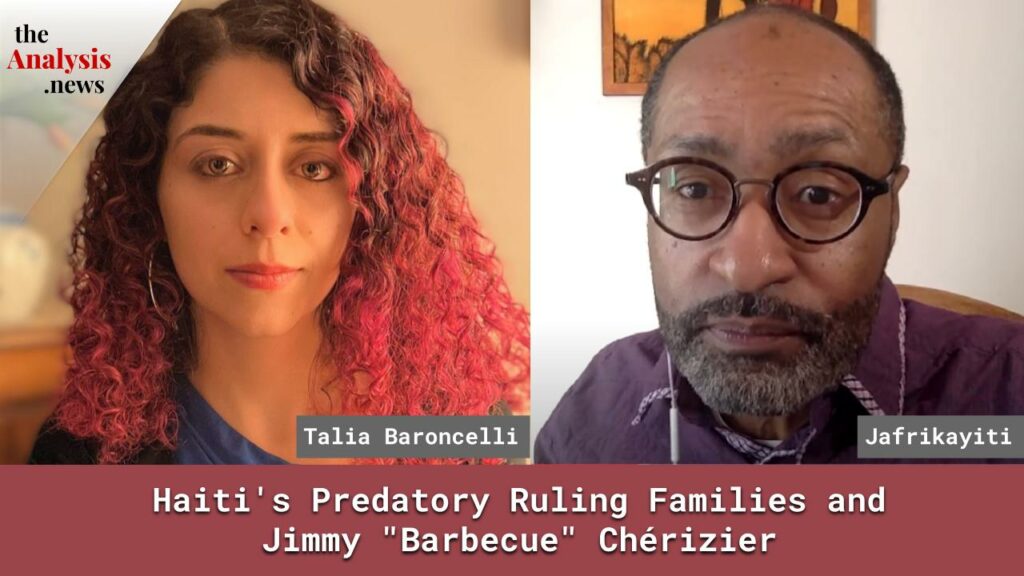
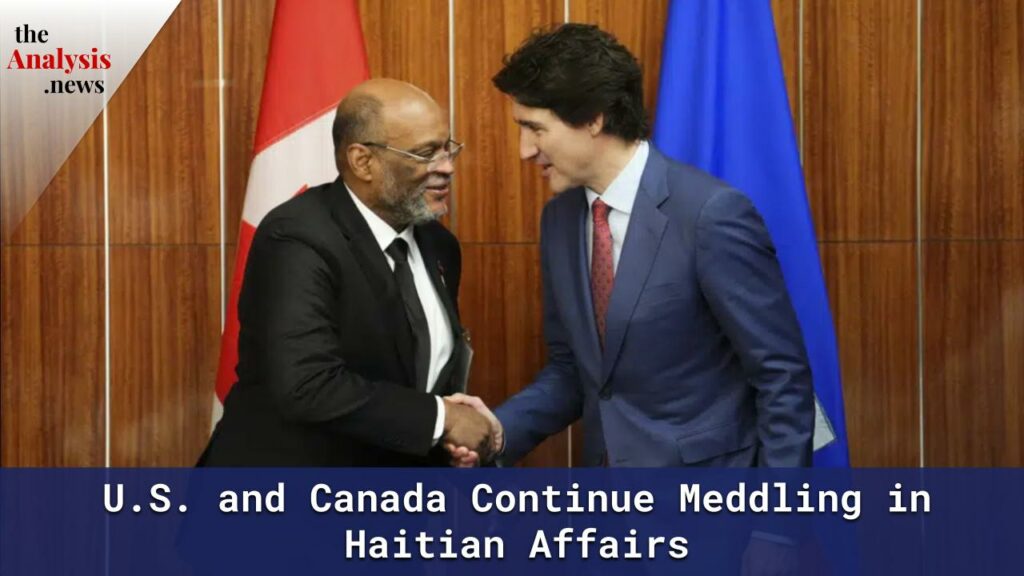
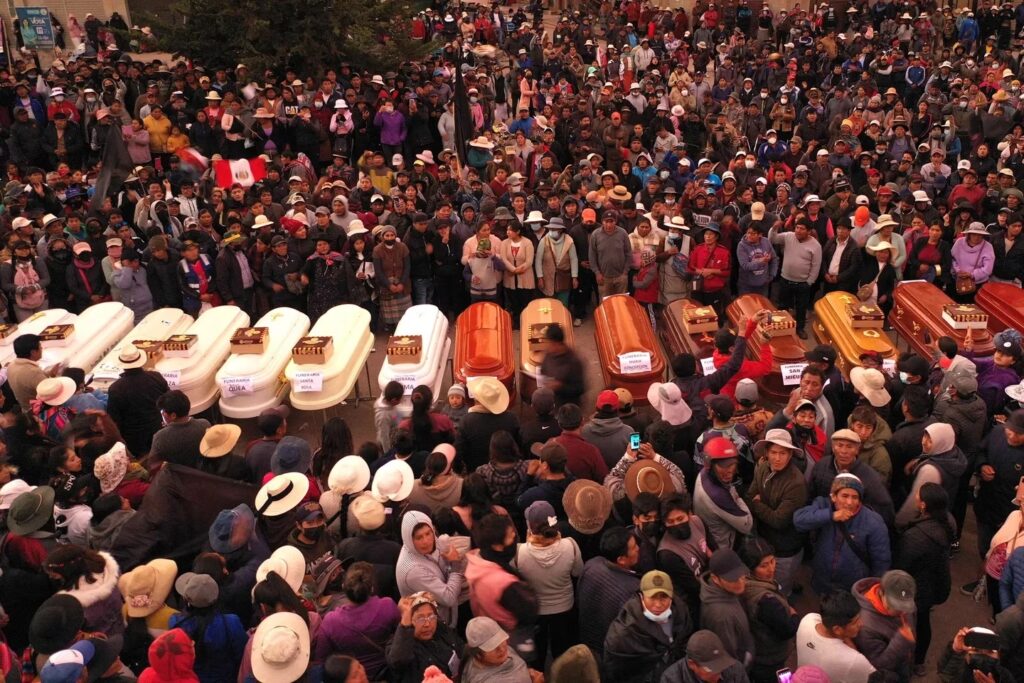
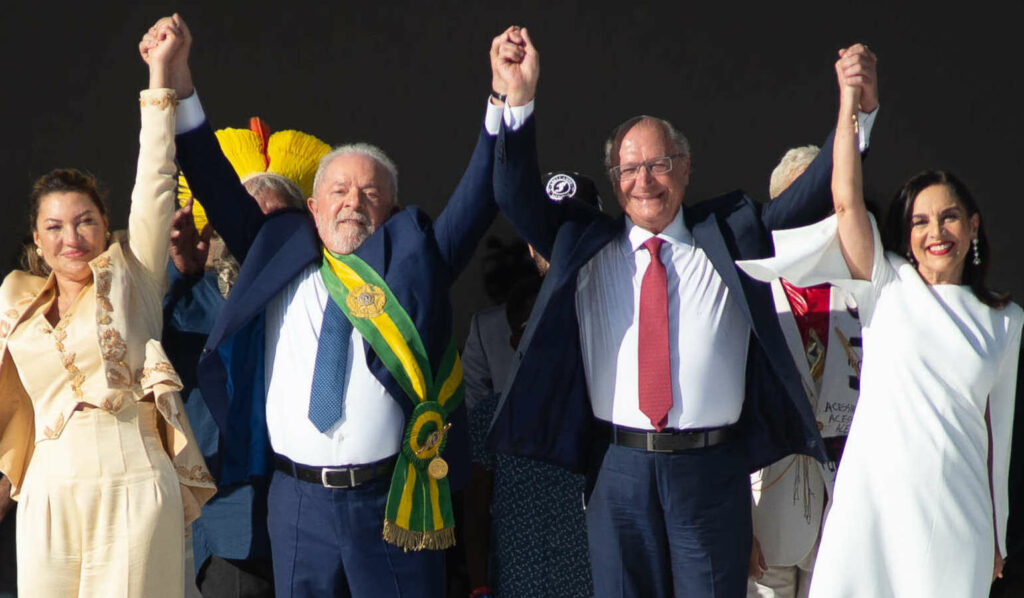
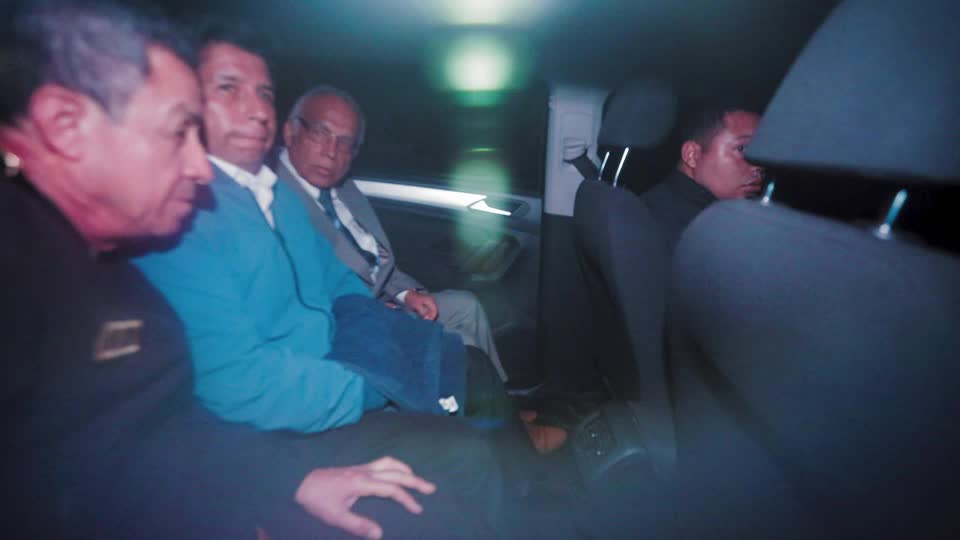
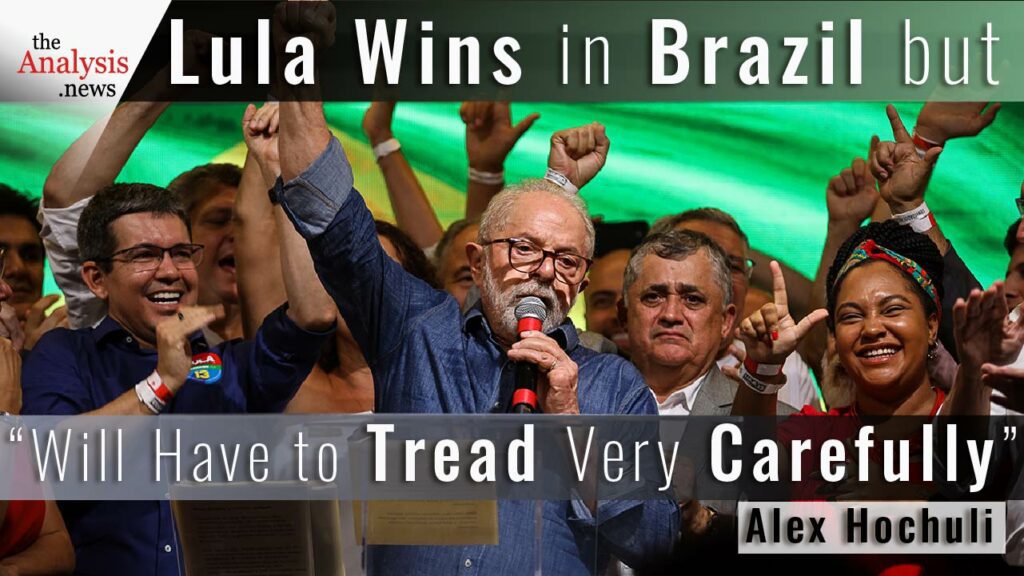
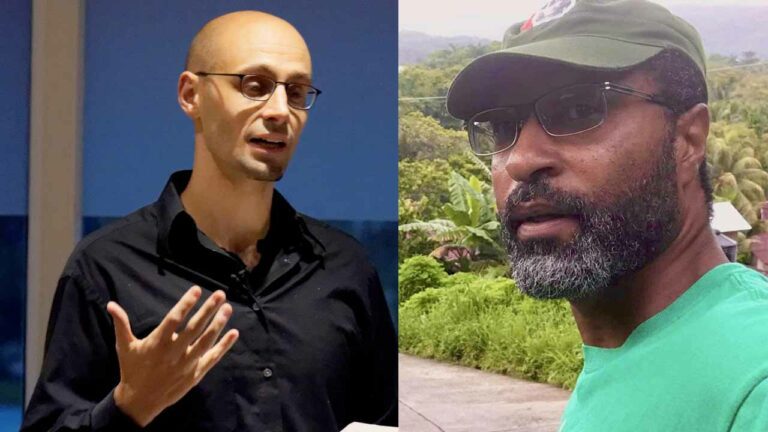
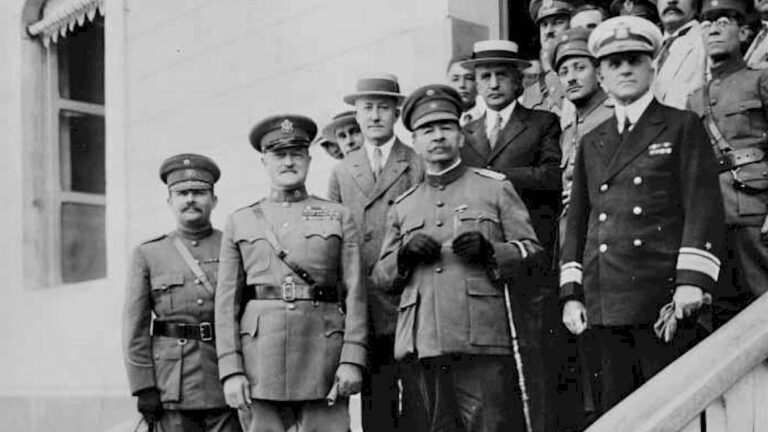

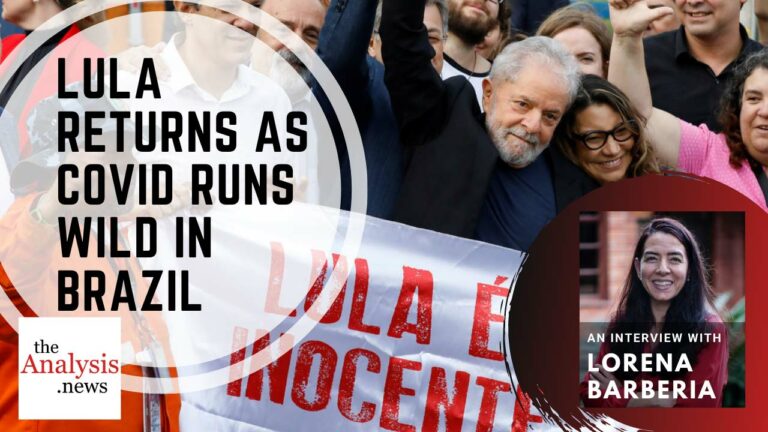
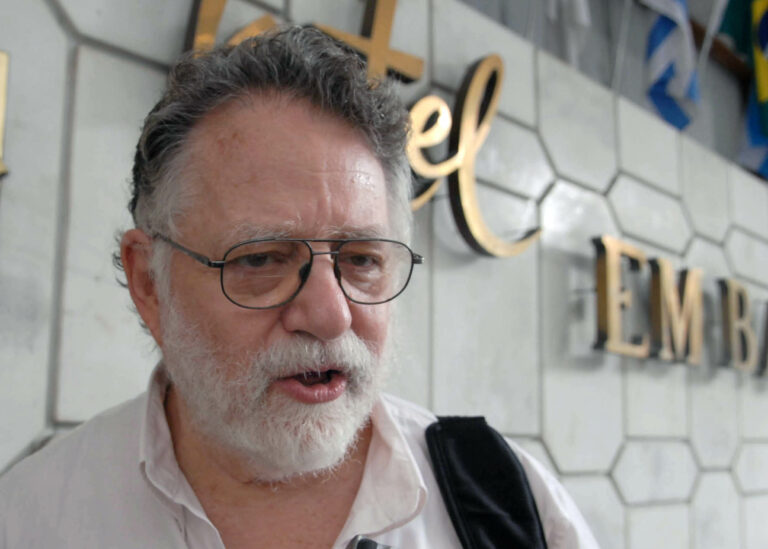
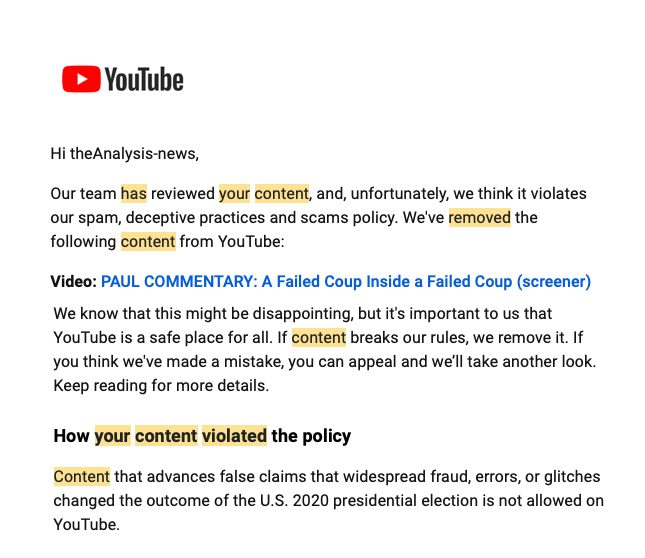
Great to see Sharmini Peries again.